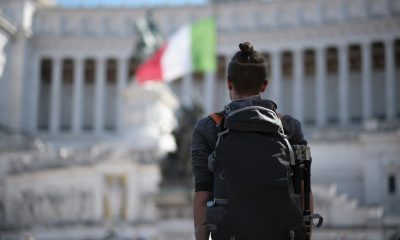Namai
Beviltiška #refuges kova su „Turkija“


When refugees flee the misery of the conditions in their country-of-origin for Turkey, they carry little more with them than fervent hopes for a better life. Yearning to finally have broken free of the unbearable hardships of their former existence, it is all too easy to believe this is a chance to leave behind the difficulties that drove them out and find enough shelter to bridge over to the country that will be their final safe-haven. Alas, for asylum-seekers who make it to Turkey, this is rarely the case. The respite they had hoped for, is frequently found to be much closer to a savage, barely-sustainable limbo - writes Kave Taheri

Kave Taheri, journalist
While Turkey is under UNHCR protection, refugees arrive to discover a lack of most basic resources for human survival. Furthermore, the situation has greatly amplified since Turkish Directorate General of Migration Management (Göç İdaresi Genel Md) was designated to survey asylum cases, (this program initiated to address the increasing the number of asylum seekers and the shortage of administrative staff).
According to UNHCR, 68.5 million people forcibly displaced worldwide, 40 million internally displaced people, 25.4 million refugees (19.9 million under UNHCR mandate, 5.4 million Palestinian refugees registered by UNRWA), and 3.1 million asylum seekers. 57% of refugees worldwide came from three countries: Syria (6.3m), Afghanistan (2.6m), and South Sudan (2.4m)
Turkey is home to 3,611,834 Syrians (5,652,186 total, taking into account Syrian refugees registered in the region, this nationality represents a marked majority). Comprising the remainder of the breakdown by nationality, there are, 170,000 Afghan, 142,000 Iraqi, 39,000 Iranian, 5,700 Somali, and 11,700 other various nationalities living in Turkey (census as of 31 October 2018). Preliminary processing of asylum cases, between registration time, the interview appointment and the refugee acceptance process. Takes a significant amount of time, and this is not taking into account the line of people waiting to be processed in this manner in preparation for the final country of asylum (or “Third Country”). This multitude of issues provides significant stressors for refugees/asylum-seekers during their temporary stay in Turkey.
The first violation of human rights will be at the hands of the UNHCR Office. Asylum-seekers can expect to be subjected to a fine-combed Spanish-style inquisition regarding their religious beliefs and political ideology at the time of registration at the office. Whereas Article 18 of the Universal Declaration of Human Rights states that everyone has the right of freedom of thought, conscience and religion, the very purpose to prevent discriminatory procedures such as these, Turkey flagrantly disregards this agreement in the treatment of this vulnerable population.
Asylum-seekers and refugees (those whose cases have official refugee status) additionally suffer from a lack of job security. They are for the most part assigned to work in menial jobs (“Black Work”) in positions such as factory-worker, restaurant dish-washer, yardman or laundry-cleaner with marginal, unsustainable pay. Without special permission required for work in Turkey, the employers can get away with paying refugees grossly unfair wages, far less than they will pay the native citizenry of Turkey. Gruelling job conditions also are the norm, such 10 to 15 hour work days, zero monthly leave, and no health insurance, the net result of these factors equalling to a life of little more than miserable servitude.
Currently, a threshold has been reached at which this system of hardship is tipping over into a human-rights disaster. Due to a lack of legal protection for asylum-seekers, employers can exploit this vulnerable group outside of work expectations, becoming abusive in other ways such as sexually. Due to the of the lack of rights for refugees to work and the illegal nature of their work, there are a lot of employers who can simply refuse to pay after the job is completed. They can do this with impunity due to asylum-seekers lack of labour insurance, and will only be fined if the police find out.
No financial assistance is available for the asylum-seeker. Only after acceptance as a refugee, and in exceptional circumstances, will a small amount of monthly stipend be offered to a few refugees; this, however, is but a fraction of what is needed for even meagre housing and sustenance. Though a normal citizen with poor job prospects could at least travel to find a better job perhaps, this freedom is not available to asylum-seekers as they are banned from going to other cities in Turkey without police permission. Moreover, this picture will not get any better in the near future as asylum seekers newly arriving after September 10 can expect to wait in long lines before receiving an ID card from Turkish Directorate General of Migration Management (Göç İdaresi Genel Md), marking them as refugees. During this long wait, they cannot rent a house, buy a SIM Card, open a bank account, or even hold insurance.
In addition to these fundamental hardships, for those refugees who hold marginalized beliefs such as Christianity, Baha’i, Atheism or Communism or qualify as LGBTQ status, the situation can be dire, as due to ethnicity, gender or sexual orientation and complete disenfranchisement, these groups are easy targets for treatment ranging from severe ostracizing to violence, including sexual assault, by Turkish locals. Several cases have been reported of refugee women who were sexually abused or raped, and sadly as they could easily be blamed for the attack, they will ultimately not be likely to report the event in order to preserve their “honour”. Furthermore, those asylum seekers entering Turkey through illegal borders are frequently harassed by smugglers, have their personal belongings are stolen and fall victim to human traffickers before arriving at their destination.
Regardless of protests, sit-in and hunger-strikes by the refugees to raise awareness of these issues, not only do the officials not offer any aid to the beleaguered demographic, but protesters are punished for voicing this distress at all.
Usually, after such protests, the refugees are exiled to cities with even more substandard conditions of living, swept under the rug for someone else to deal with. The UN has sadly not done its job in mitigating this ongoing breach of human rights. Due to Turkey’s strategic geographical location, it is a strong magnet for asylum seekers from Iran, Iraq, Syria, Afghanistan, Pakistan, and Africa. The likelihood is for the situation to remain the same, or increase in severity if no constructive intervention from the UN takes place.
Pasidalinkite šiuo straipsniu:
-

 Tabakasprieš 4 dienas
Tabakasprieš 4 dienasKodėl ES tabako kontrolės politika neveikia
-

 Kinija ir ESprieš 4 dienas
Kinija ir ESprieš 4 dienasSusikibkite rankomis, kad sukurtumėte bendros ateities bendruomenę ir sukurtumėte šviesesnę Kinijos ir Belgijos ateitį visapusiškai draugiško bendradarbiavimo partnerystei
-

 Europos Komisijaprieš 4 dienas
Europos Komisijaprieš 4 dienasJK studentams ir jauniems darbuotojams siūlomas ne visai laisvas judėjimas
-

 Vidurio Rytaiprieš 4 dienas
Vidurio Rytaiprieš 4 dienasES reakcija į Izraelio raketų smūgį Iranui reiškia įspėjimą Gazos ruože























